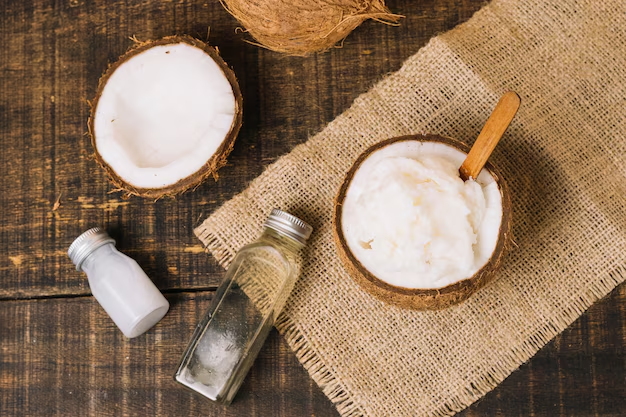Your Guide to Is Coconut Sugar Good For Diabetics
What You Get:
Free Guide
Free, helpful information about Diabetes FAQ and related Is Coconut Sugar Good For Diabetics topics.
Helpful Information
Get clear and easy-to-understand details about Is Coconut Sugar Good For Diabetics topics and resources.
Personalized Offers
Answer a few optional questions to receive offers or information related to Diabetes FAQ. The survey is optional and not required to access your free guide.
Is Coconut Sugar a Good Option for Diabetics? Here's What You Need to Know
In the quest for healthier alternatives, coconut sugar is often hailed as a more natural, nutritious substitute to regular sugar. But when it comes to diabetics, is this tropical sweetener truly a better choice? Let’s delve into what makes coconut sugar unique and whether it safely fits into a diabetic diet.
Understanding Coconut Sugar
Coconut sugar is derived from the sap of the coconut palm tree. It undergoes minimal processing, retaining a portion of the nutrients found in the coconut palm, such as iron, zinc, calcium, and potassium. It’s also known for containing inulin, a dietary fiber that can slow glucose absorption. But the question remains: how does its sugar content stack up against traditional sugar?
Glycemic Index and Diabetes
One of the main benefits touted for coconut sugar is its low glycemic index (GI). The glycemic index is a measure of how quickly a food raises blood sugar levels. Coconut sugar reportedly has a GI of around 35, compared to white sugar’s GI of 65, indicating that coconut sugar causes a slower spike in blood glucose.
For diabetics, maintaining stable blood sugar levels is crucial. While coconut sugar might indeed result in a lower rise in blood sugar, it still includes sucrose and fructose, elements that can impact glucose levels significantly when consumed in large quantities. Therefore, even with its lower GI, moderation is key.
Is Coconut Sugar the Best Choice?
Though it is a more natural alternative and may have a smaller impact on blood glucose levels compared to refined sugar, coconut sugar is not a free pass for diabetics. It’s important to monitor intake, keep track of daily carbohydrate consumption, and discuss dietary changes with a healthcare provider. If used wisely, coconut sugar can fit within a diabetic meal plan, offering variety and flavor without compromising health.
Alternatives Worth Considering
Diabetics often explore other sweetening alternatives that might better suit their dietary needs:
- Stevia: A zero-calorie sweetener derived from a plant. It doesn't affect blood glucose levels.
- Erythritol: A sugar alcohol that’s naturally found in some fruits. It's low in calories and has a minimal effect on blood sugar.
- Monk Fruit Sweetener: Another natural, low-calorie alternative that doesn’t spike blood sugar.
Exploring Financial Assistance Resources
Managing diabetes often comes with additional expenses ranging from medication to frequent doctor visits. Having access to financial assistance programs can make a noticeable difference. Here are some valuable resources and options:
- Medicare and Medicaid: Federal programs offering health coverage for eligible low-income individuals and families.
- Pharmaceutical Assistance Programs: Many drug manufacturers offer programs to provide medications at no cost or at a reduced price.
- Supplemental Nutrition Assistance Program (SNAP): Provides nutritional benefits to supplement the food budget of those in need so healthier food options are more accessible.
- Diabetes Management Programs: Offered through local hospitals or community centers, providing support and education at no or low cost.
- Nonprofit Organizations: Groups like the American Diabetes Association offer resources and information on financial aid.
Key Takeaways
- 🍬 Coconut Sugar: A lower-GI sugar, but should be used with caution.
- 💡 Stevia, Erythritol, Monk Fruit: Worth considering for zero-impact on blood sugar.
- 📋 Medicare, Medicaid, and SNAP: Essential for managing health and costs.
- 🤝 Support Programs: Access education and medication assistance through reputable services.
Choosing the right sweetener is just one aspect of managing diabetes effectively. Combining nutritional awareness with available financial resources can lead to healthier, less stressful living.
What You Get:
Free Diabetes FAQ Guide
Free, helpful information about Is Coconut Sugar Good For Diabetics and related resources.

Helpful Information
Get clear, easy-to-understand details about Is Coconut Sugar Good For Diabetics topics.

Optional Personalized Offers
Answer a few optional questions to see offers or information related to Diabetes FAQ. Participation is not required to get your free guide.


